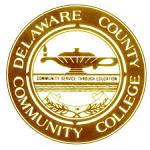What do they do?
Officiate at competitive athletic or sporting events. Detect infractions of rules and decide penalties according to established regulations. Includes all sporting officials, referees, and competition judges.
Also known as:
Baseball Umpire, Basketball Referee, Diving Judge, Dressage Judge, Equestrian Events Judge, Football Referee, Horse Show Judge, Major League Baseball Umpire (MLB Umpire), Referee, Soccer Referee, Softball Umpire, Sports Official, Umpire
-
0%
Change
Ranks #53 in job growth rate30Job Openings
Ranks #42 in net job growth
Looking for colleges that offer a specific major? Use the College Match Tool to find your best-matched schools and discover your estimated Net Price!
- Bachelor's degree (30%)
- Some college, no degree (30%)
- Master's degree (16%)
- Associate's degree (10%)
- High school diploma equivalent (9%)
- Doctorate or Professional Degree (3%)
- Less than high school diploma (2%)
People in this career often have talent in:
- Oral Expression - The ability to communicate information and ideas in speaking so others will understand.
- Far Vision - The ability to see details at a distance.
- Oral Comprehension - The ability to listen to and understand information and ideas presented through spoken words and sentences.
- Near Vision - The ability to see details at close range (within a few feet of the observer).
- Problem Sensitivity - The ability to tell when something is wrong or is likely to go wrong. It does not involve solving the problem, only recognizing that there is a problem.
- Speech Clarity - The ability to speak clearly so others can understand you.
People in this career often do these activities:
- Coordinate athletic or sporting events or activities.
- Evaluate skills of athletes or performers.
- Inspect work sites to identify potential environmental or safety hazards.
- Inspect facilities, equipment or supplies to ensure conformance to standards.
- Verify accuracy of data.
- Coach others.
- Compile technical information or documentation.
This page includes data from:

 Occupation statistics: USDOL U.S. Bureau of Labor Statistics Occupational Employment Statistics
Occupation statistics: USDOL U.S. Bureau of Labor Statistics Occupational Employment Statistics
 Videos: CareerOneStop, USDOL/ETA and the Minnesota Department of Employment & Economic Development
Videos: CareerOneStop, USDOL/ETA and the Minnesota Department of Employment & Economic Development





